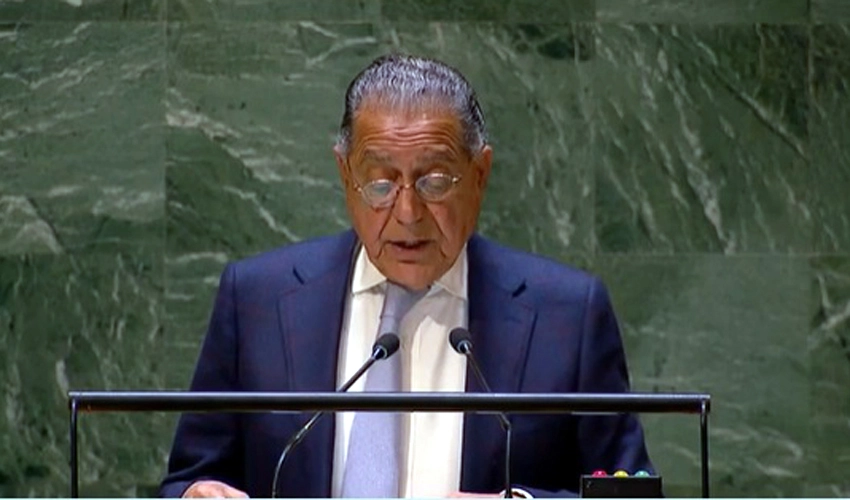Pakistan calls for steps to enhance credibility of UNGA’s resolutions in effort to promote world peace

UNITED NATIONS (APP) - Emphasizing the United Nations General Assembly’s status as the only UN forum with universal representation, Pakistan has urged the 193-member body to enhance the credibility of its decisions by setting up a mechanism to monitor the implementation of its own resolutions.
“This authority is explicit whenever the Security Council is unable to act or is prevented from acting,” Ambassador Munir Akram said in a debate on revitalizing the work of the General Assembly.
In this regard, the Pakistani envoy cited the Oct 27 Assembly resolution calling for a 'humanitarian truce' in Israel’s war on Gaza after the Security Council was stymied by the major powers’ use of votes. “In such circumstances,” he added, “the voice of the entire membership has not only moral but also considerable legal force,” noting that the Assembly’s recommendations create obligations for the entire international community and the UN system.
“We hope that the members of the Security Council will also adhere to this General Assembly resolution.” Ambassador Akram emphasized that the General Assembly, under the UN Charter, has vast complementary and residual authority in relation to the promotion and preservation of international peace and security.
The Assembly’s role in peace and security also extends to addressing the root causes of conflicts and disputes and promoting the peaceful resolution of disputes in accordance with the principles of the UN Charter and UN resolutions, he pointed out.
“While we need to improve the Assembly’s processes and methods of work, the revitalization of the Assembly is a political issue, not one of process alone,” Ambassador Akram said. But, the Pakistani envoy added, “The Assembly’s deficiencies arise from the inability and, in large measure, the unwillingness of some of its major member states to allow it to fully utilize its authority and potential.”
Further, he said, “The Assembly is authorized to consider and approve the UN budget and arrangements regarding the budgets of certain specialized agencies. Efforts to erode the authority and role of the Assembly’s Administrative and Budgetary (Fifth) Committee must be resisted.
“The role of the Committee for Programme and Coordination needs to be strengthened, and ACABQ needs to be told to avoid arbitrary positions in its budgetary recommendations."
Opening the debate, General Assembly President Dennis Francis said, “The images of the human cost of the Mideast conflict and humanitarian crises are being etched indelibly into the public consciousness. They no doubt feel intense frustration and disillusionment when the organization charged with stopping it seems incapable of doing so,” he said. “And while war rages on, development, the climate crisis, human rights, and disarmament concerns forcefully grind on, showing very little progress with the passage of time. While some may regard revitalization of the General Assembly as a technical process, it is essentially a political undertaking,” he said.
“Today, we must have both the commitment and the courage to consider and agree on solutions that transcend the ‘business as usual’ approach, considering that the challenges before us hardly qualify to be considered either routine or normal,” he stressed.
Delegates discussing the Assembly’s work also echoed his sentiments, highlighting the need to make the body more effective and efficient—a beacon of multilateralism—particularly in this day and age where conflict rages on multiple fronts. Revitalizing the body’s work is a timely order as the 193 Member States of the Assembly see their list of challenges – whether in climate change or food insecurity—continue to grow.
“A strong and efficient assembly is particularly crucial to advancing the Sustainable Development Goals,” they said.







